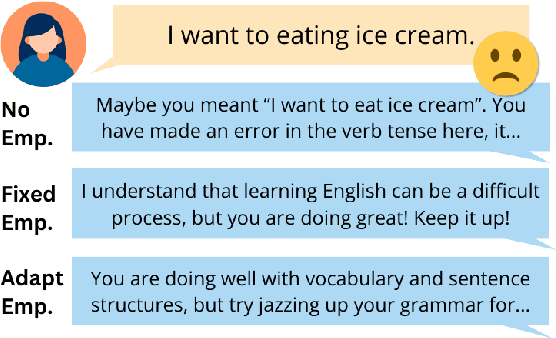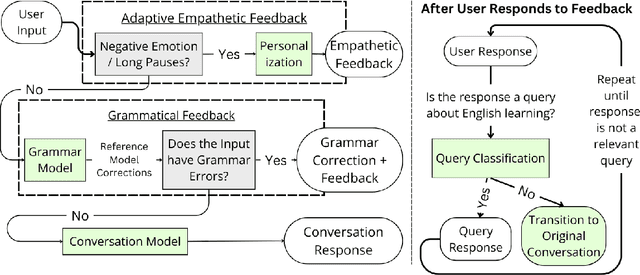Li Siyan
DETOUR: An Interactive Benchmark for Dual-Agent Search and Reasoning
Jan 30, 2026Abstract:When recalling information in conversation, people often arrive at the recollection after multiple turns. However, existing benchmarks for evaluating agent capabilities in such tip-of-the-tongue search processes are restricted to single-turn settings. To more realistically simulate tip-of-the-tongue search, we introduce Dual-agent based Evaluation Through Obscure Under-specified Retrieval (DETOUR), a dual-agent evaluation benchmark containing 1,011 prompts. The benchmark design involves a Primary Agent, which is the subject of evaluation, tasked with identifying the recollected entity through querying a Memory Agent that is held consistent across evaluations. Our results indicate that current state-of-the-art models still struggle with our benchmark, only achieving 36% accuracy when evaluated on all modalities (text, image, audio, and video), highlighting the importance of enhancing capabilities in underspecified scenarios.
PAPILLON: PrivAcy Preservation from Internet-based and Local Language MOdel ENsembles
Oct 22, 2024Abstract:Users can divulge sensitive information to proprietary LLM providers, raising significant privacy concerns. While open-source models, hosted locally on the user's machine, alleviate some concerns, models that users can host locally are often less capable than proprietary frontier models. Toward preserving user privacy while retaining the best quality, we propose Privacy-Conscious Delegation, a novel task for chaining API-based and local models. We utilize recent public collections of user-LLM interactions to construct a natural benchmark called PUPA, which contains personally identifiable information (PII). To study potential approaches, we devise PAPILLON, a multi-stage LLM pipeline that uses prompt optimization to address a simpler version of our task. Our best pipeline maintains high response quality for 85.5% of user queries while restricting privacy leakage to only 7.5%. We still leave a large margin to the generation quality of proprietary LLMs for future work. Our data and code will be available at https://github.com/siyan-sylvia-li/PAPILLON.
EDEN: Empathetic Dialogues for English learning
Jun 25, 2024



Abstract:Dialogue systems have been used as conversation partners in English learning, but few have studied whether these systems improve learning outcomes. Student passion and perseverance, or grit, has been associated with language learning success. Recent work establishes that as students perceive their English teachers to be more supportive, their grit improves. Hypothesizing that the same pattern applies to English-teaching chatbots, we create EDEN, a robust open-domain chatbot for spoken conversation practice that provides empathetic feedback. To construct EDEN, we first train a specialized spoken utterance grammar correction model and a high-quality social chit-chat conversation model. We then conduct a preliminary user study with a variety of strategies for empathetic feedback. Our experiment suggests that using adaptive empathetic feedback leads to higher perceived affective support, which, in turn, predicts increased student grit.
Using Adaptive Empathetic Responses for Teaching English
Apr 21, 2024Abstract:Existing English-teaching chatbots rarely incorporate empathy explicitly in their feedback, but empathetic feedback could help keep students engaged and reduce learner anxiety. Toward this end, we propose the task of negative emotion detection via audio, for recognizing empathetic feedback opportunities in language learning. We then build the first spoken English-teaching chatbot with adaptive, empathetic feedback. This feedback is synthesized through automatic prompt optimization of ChatGPT and is evaluated with English learners. We demonstrate the effectiveness of our system through a preliminary user study.
 Add to Chrome
Add to Chrome Add to Firefox
Add to Firefox Add to Edge
Add to Edge